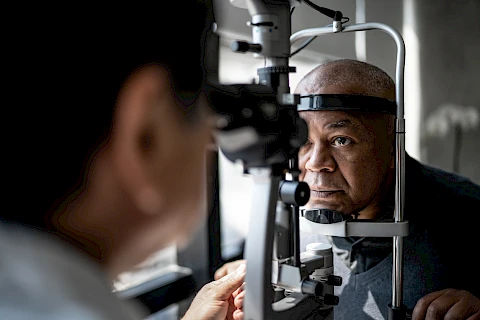
Maintaining eye health is a vital part of overall well-being. As we age, vision naturally changes, increasing the risk of conditions that can impair sight. Good vision can help seniors maintain independence and enjoy a better quality of life in their later years. October is Blindness Awareness Month, making it a perfect time to learn more about preventing blindness and promoting eye health in older adults.
Age-Related Eye Conditions
Several eye conditions are more likely to affect us as we grow older. Cataracts are a common condition, where the lens of the eye becomes cloudy, leading to blurry vision. Glaucoma is another serious condition that damages the optic nerve and can cause vision loss if not treated. Age-related macular degeneration (AMD) affects the macula, the part of the eye that controls sharp, central vision, often leading to loss of vision in the center of the eye. Diabetic retinopathy is a concern for those with diabetes, where high blood sugar levels damage blood vessels in the retina.
Look out for symptoms such as blurred vision, difficulty seeing at night, loss of central vision, and eye pain or pressure. If you notice any of these symptoms, it's essential to see an eye doctor immediately.
Tips for Maintaining Good Eye Health
Keeping your eyes healthy as you age often starts with making smart lifestyle choices. Eating a balanced diet rich in vitamins and antioxidants can be beneficial for your eyes. Foods like leafy greens, fish, and fruits are great choices.
Regular physical activity helps maintain overall health, including your eyes. Just remember to consult a doctor before starting a new exercise routine. It's also important to avoid smoking, as it can increase the risk of developing eye diseases.
Taking protective measures can further safeguard your eyes. Wear sunglasses with UV protection when you are outside to protect your eyes from harmful rays. Ensure you have adequate lighting when reading or working to prevent straining your eyes.
Managing any chronic conditions is critical for eye health. If you have diabetes, keeping your blood sugar levels under control can prevent diabetic retinopathy. Managing blood pressure and cholesterol can also reduce the risk of vision problems.
The Importance of Regular Eye Exams
Regular eye exams are essential for detecting eye conditions early and getting timely treatment. Early detection can prevent many serious problems from progressing. Seniors should have their eyes checked annually or as recommended by their eye doctor. These exams are not only vital for your eye health but also provide insight into other health issues.
During an eye exam, your doctor can spot signs of conditions like high blood pressure or diabetes, which might otherwise go unnoticed. This makes regular eye exams a necessary part of overall health monitoring.
Prioritize Eye Health with Personalized Support From Senior Helpers
Taking steps to prevent blindness and maintain good eye health is crucial at any age, but becomes especially necessary in the golden years. With declining vision, many seniors find that they need more help at home. If you need assistance managing daily activities or require help with transportation and appointments with your eye doctor, contact Senior Helpers Lexington. Serving Lexington, Georgetown, Nicholasville, and Shelbyville, we are here to provide the care and support you need to stay healthy and independent in your golden years!